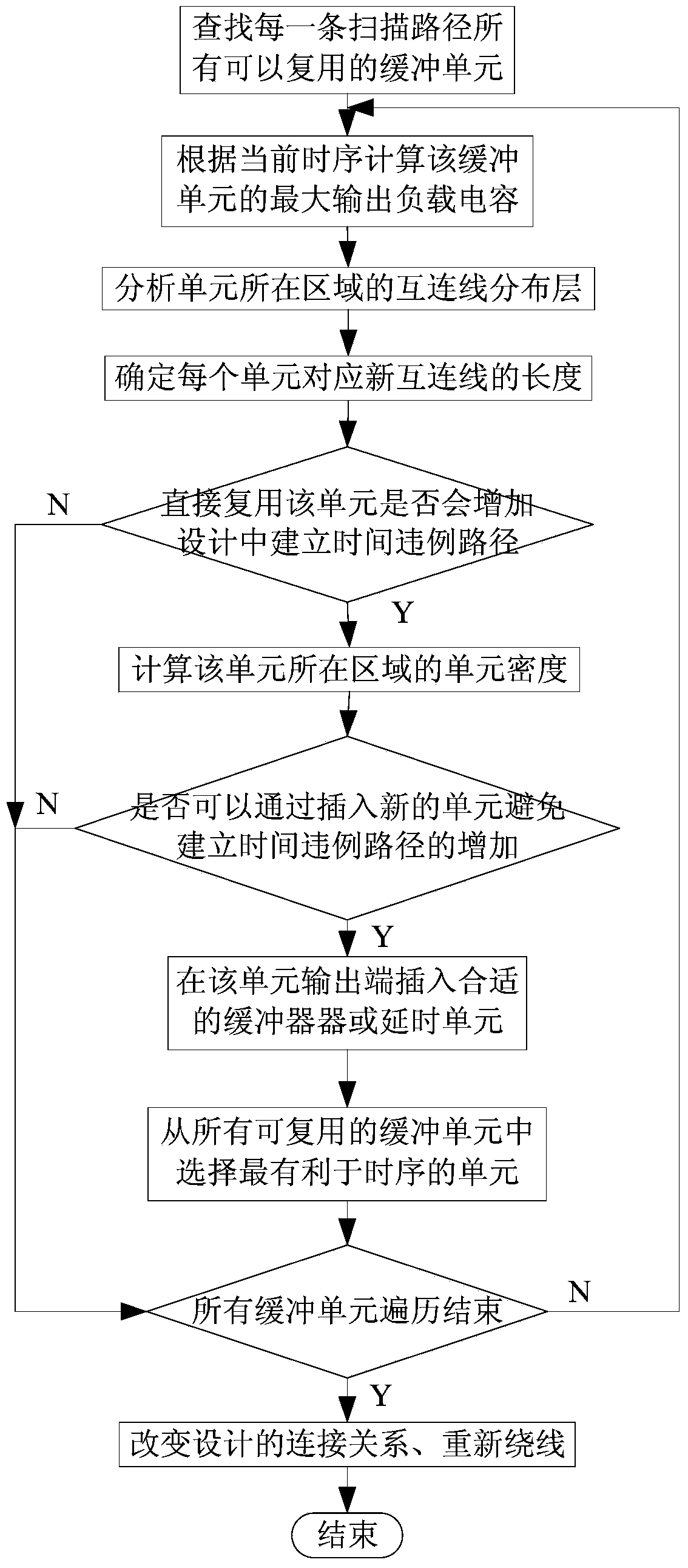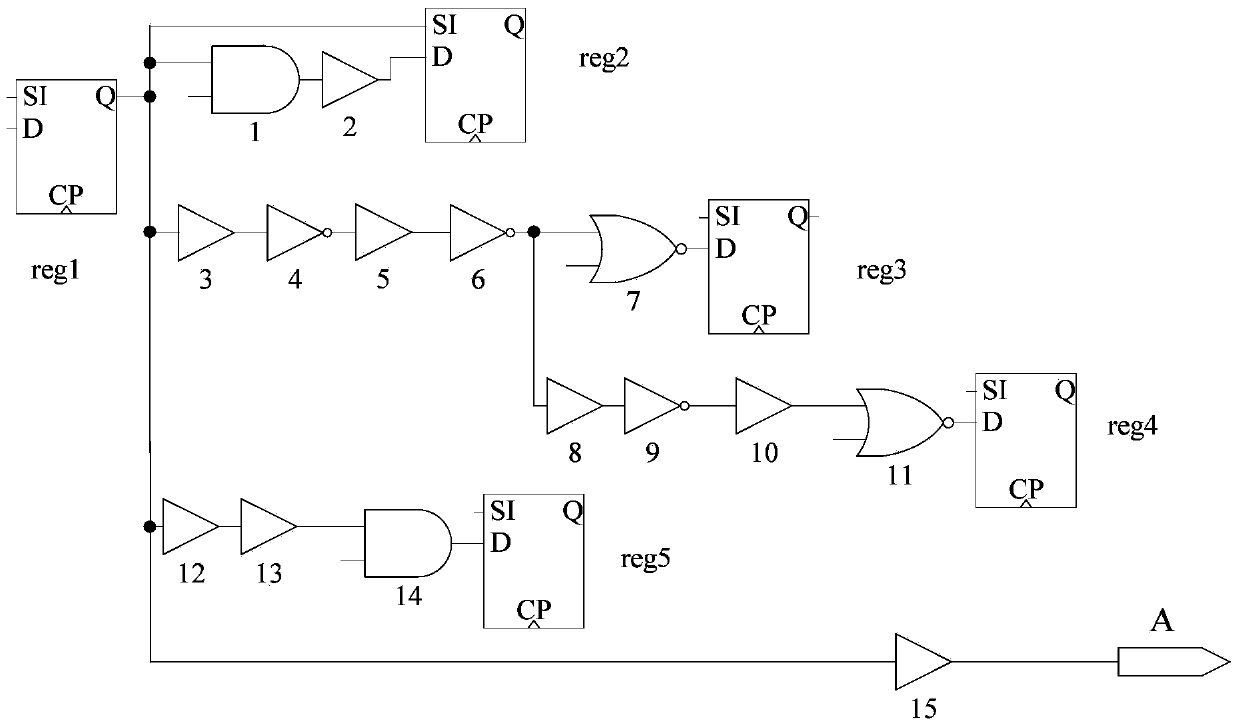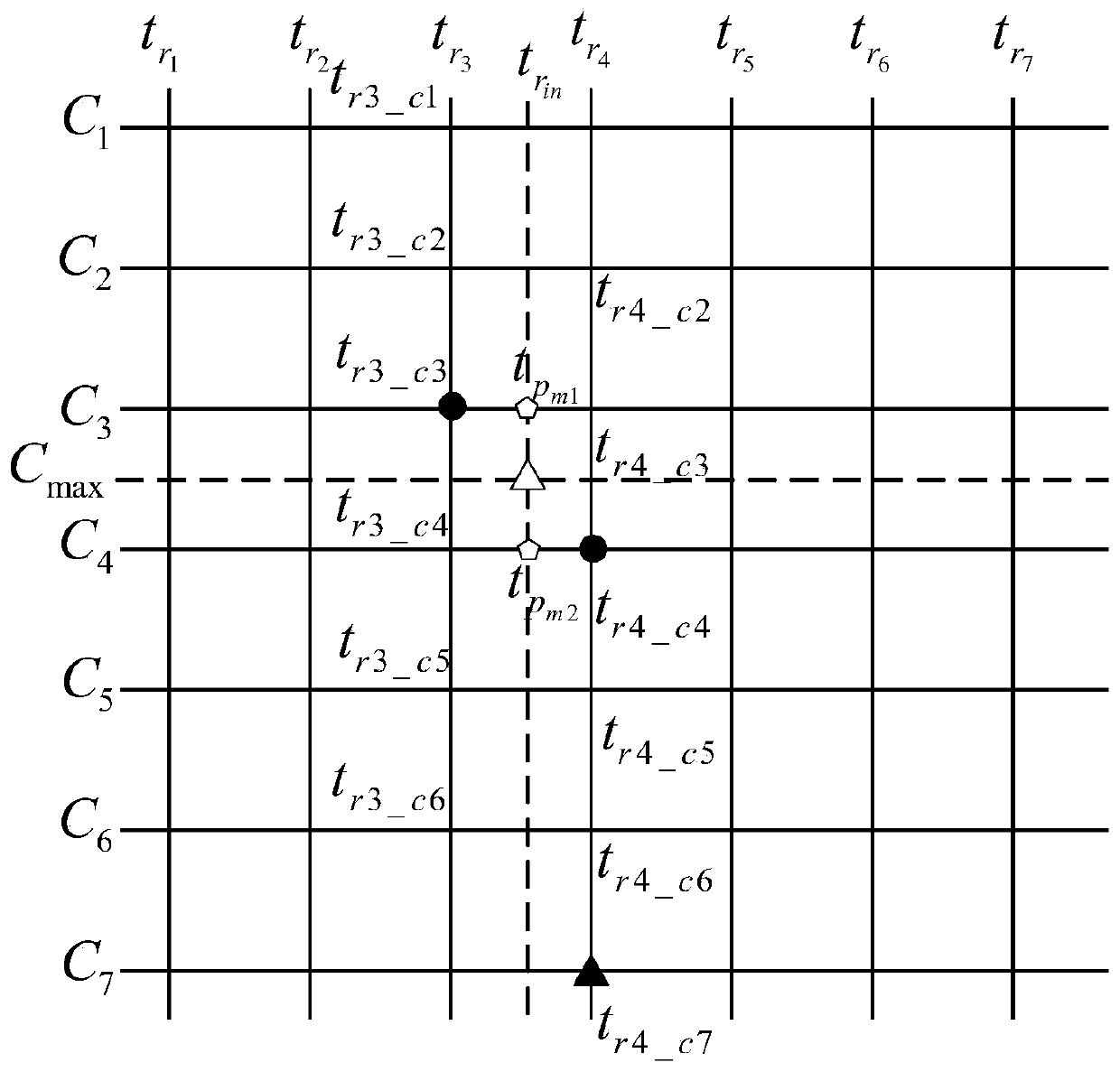Retention time sequence optimization method based on multiplexing of buffer unit
A buffer unit, hold time technology, applied in special data processing applications, instruments, electrical digital data processing, etc., can solve problems such as inability to optimize timing, too high, increase design area and power consumption
- Summary
- Abstract
- Description
- Claims
- Application Information
AI Technical Summary
Problems solved by technology
Method used
Image
Examples
Embodiment Construction
[0048] Such as figure 1 As shown, the implementation steps of the hold time sequence optimization method based on buffer unit multiplexing in this embodiment are as follows:
[0049] 1) In the design to be optimized, find the buffer units on the functional data path that have the same starting point as the scan path that holds the timing violation as reusable buffer units, and designate one of the buffer units as the current buffer unit.
[0050] Since there may be multiple functional data paths at the same starting point, and there may also be buffer units in the port path, this embodiment divides all the functional data paths with the same starting point of the scanning path, and the logical units between the starting register and the non-buffering unit in the port path All the buffer units in between are searched, so as to find the buffer units on the functional data path with the same starting point in each scan path in the design. right figure 2 Take the path shown as ...
PUM
 Login to View More
Login to View More Abstract
Description
Claims
Application Information
 Login to View More
Login to View More - R&D
- Intellectual Property
- Life Sciences
- Materials
- Tech Scout
- Unparalleled Data Quality
- Higher Quality Content
- 60% Fewer Hallucinations
Browse by: Latest US Patents, China's latest patents, Technical Efficacy Thesaurus, Application Domain, Technology Topic, Popular Technical Reports.
© 2025 PatSnap. All rights reserved.Legal|Privacy policy|Modern Slavery Act Transparency Statement|Sitemap|About US| Contact US: help@patsnap.com



